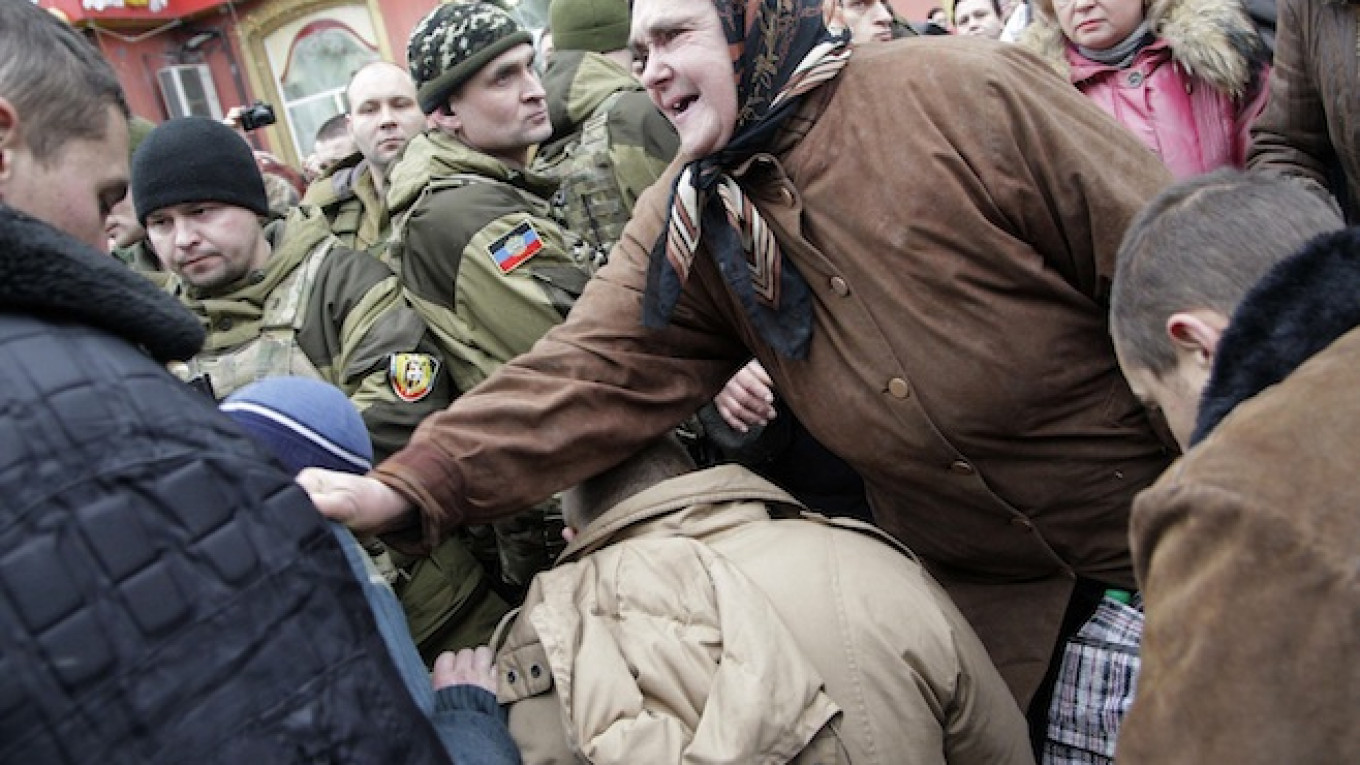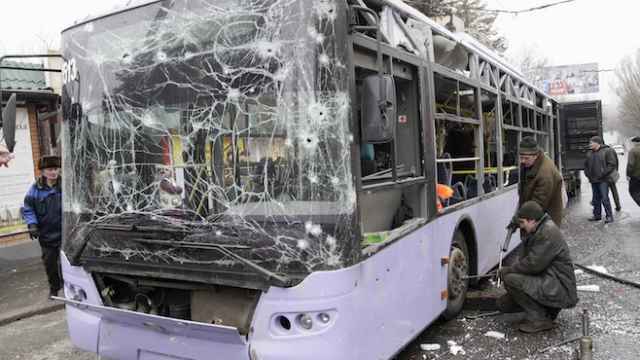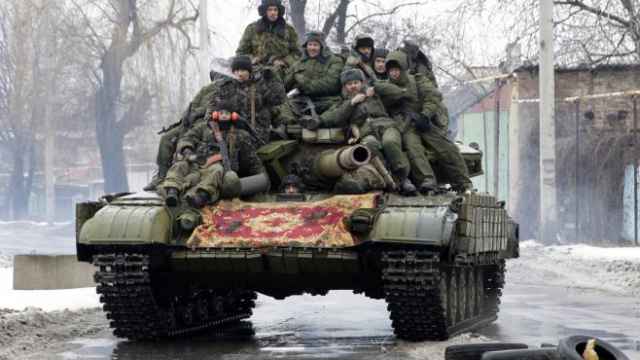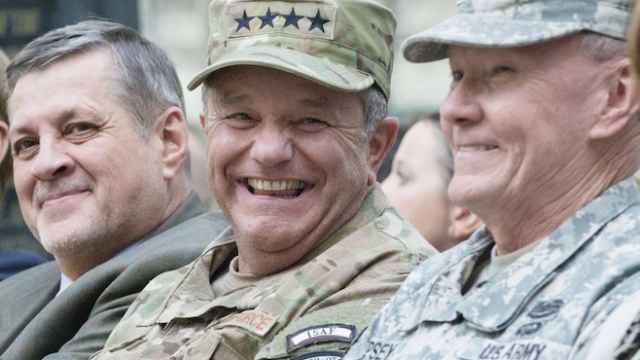GENEVA — The known death toll in the Ukraine conflict that began last April now exceeds 5,000 and may be far higher, the United Nations human rights office said Friday.
Fighting has intensified over the past 10 days with the leader of pro-Russian separatists quoted on Friday as saying they would pursue a military offensive in Ukraine's east and not initiate cease-fire talks with the Kiev government.
"The significant escalation of hostilities since Jan. 13 has taken the toll to 5,086 individuals and we fear the real figure may be considerably higher," UN human rights spokesman Rupert Colville told a news briefing in Geneva.
The toll, based on official data on casualties collected by UN human rights monitors, includes 262 people killed in fighting between Ukrainian government forces and the rebels in the past nine days, "the most deadly period" since a cease-fire was declared on Sept. 5, he said. The truce did not take hold.
Asked why the uncertainty over the real death toll, Colville said: "We don't necessarily get all the military casualties." He said the toll included civilians and fighters but full figures are not always available quickly.
At least 10,948 people have also been wounded since April.
The UN rights office was concerned about "the continuing presence of foreign fighters in the east, allegedly including servicemen from the Russian Federation, as well as the presence of heavy and sophisticated weaponry in populated areas under the control of armed groups", Colville said.
Russia denies any direct involvement in the conflict.
The UN refugee agency said new Ukrainian government security regulations requiring special passes were hampering efforts to deliver aid to conflict zones in the east and making life harder for the displaced fleeing the fighting. It called for unimpeded access to eastern Ukraine.
"These restrictions on movements within Donetsk and Luhansk regions in the east of the country further complicates an already difficult situation for those forcibly displaced and made worse by the intensified fighting we have seen in recent days," UNHCR spokeswoman Karin de Gruijl told reporters.
Asked to explain the obstructions, she said: "We have been stopped at checkpoints, sometimes for security reasons, sometimes for reasons that were not entirely clear to us."
A Message from The Moscow Times:
Dear readers,
We are facing unprecedented challenges. Russia's Prosecutor General's Office has designated The Moscow Times as an "undesirable" organization, criminalizing our work and putting our staff at risk of prosecution. This follows our earlier unjust labeling as a "foreign agent."
These actions are direct attempts to silence independent journalism in Russia. The authorities claim our work "discredits the decisions of the Russian leadership." We see things differently: we strive to provide accurate, unbiased reporting on Russia.
We, the journalists of The Moscow Times, refuse to be silenced. But to continue our work, we need your help.
Your support, no matter how small, makes a world of difference. If you can, please support us monthly starting from just $2. It's quick to set up, and every contribution makes a significant impact.
By supporting The Moscow Times, you're defending open, independent journalism in the face of repression. Thank you for standing with us.
Remind me later.






